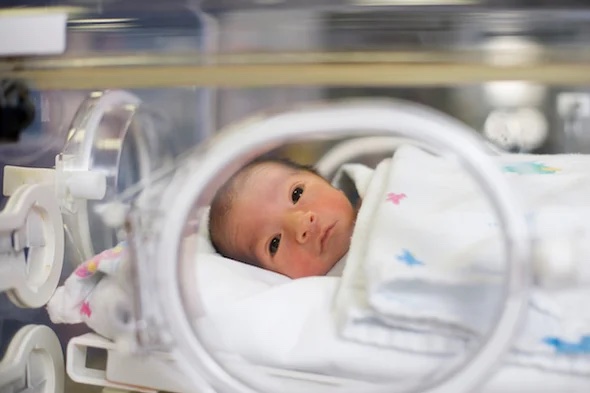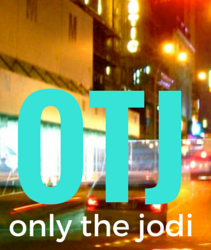
When Roe v. Wade passed in 1973, my life was a mess. An alcoholic and addict in the embryonic stages, my virtue had already been compromised despite growing up in a “good” suburban home.
The pro-life camp wants us to see a direct cause and effect line between pretty much all social ills—particularly promiscuity—and abortion and birth control. Almost sixteen and already a woman of “easy virtue” when Roe v. Wade passed, my life—and the lives of those children I didn’t have thanks and hosannas to Margaret Sanger, Katherine McKormick and Norma McCorvey aka Jane Roe—would have been exponentially worse without the access to birth control Planned Parenthood provided and that watershed ruling.
“Men give love to get sex, women give sex to get love.” Dubious instructions for life passed down by a well-meaning, albeit misguided, parent when I was barely a teen. Armed with that recipe for intimacy, for me promiscuity seemed to be the right answer to the problem of feeling unlovable, unwanted, never good/smart/pretty enough.
I’d lost my virginity at 14, 1971. Birth control didn’t encourage my wildness, it wasn’t even an option until the following year and Roe v. Wade wouldn’t pass until January, 1973. Six months later, I turned 16, went on the pill and started jotting down the names of the boys I’d “been with.” I’d thought of myself as an adventurer, a libertine, but I was afraid that forgetting even one of those boys would label me promiscuous—barely a half-step from being a whore and branded with the mark of Cain Mary Magdalene.
Planned Parenthood said they would have to cut off my birth control because of my drug and alcohol abuse. I could do one, or the other, but not both at the same time. It felt like the end of the world, my Sophie’s Choice. Being sexually desired was the one thing that made me feel seen. For me, sex was love. Drugs and vodka were my solution to everything, my solace. My whole world. I manipulated my way back to birth control, the pill, and a series of IUDs.
Unfortunately, none of those methods were 100 percent effective. I lost one baby after another. Two I might have wanted to keep; their baby daddies were long gone. Neither one a candidate for father of the year: one a violent abuser, one a lovable addict who died of complications from AIDS. There was a pregnancy that wouldn’t just leave spontaneously and my foray into the “self-aborting” Chinatown folk medicine that left me bleeding from every orifice other than the right one. I had to wait until any sneeze or cough stopped causing a cascade of blood before I could schedule a legal, safe abortion.
Neither access to abortion, nor birth control, not even a parent’s poor attempt at life advice can be blamed for having started my journey. Blame it on choice. Poor choice. No choice. Is there choice or consent in a blackout? Choice was knowing in my bones: I was not as pretty as, as smart as, not enough.
The overturning of Roe v. Wade is Supreme Justice Clarence Thomas’ gateway drug. He’s declared virtual war on other landmark rulings that deal with the right to contraception.
Griswold vs. Connecticut, protects married couples’ rights to obtain contraceptives.
Lawerence v. Texas, established the right to engage in private sexual acts.
What would my life have been without birth control or Roe v Wade?
There was gonorrhea, PPNG, chlamydia, syphilis, trichomoniasis.
There was vodka, heroin, cocaine, LSD, angel dust, amyl nitrate, freebase, and more vodka.
There were three or four miscarriages and one abortion.
There might have been three or four or five babies born—to an alcoholic, drug-addicted single-mother with a violent temper and a storehouse of memories to feed the rage.
My thirtieth birthday present to myself was a tubal ligation. Biological clocks are real I’d discovered, and ovum want to grow to be useful members of society in the worst way.
That was me, I was the worst way.
During my prime child-bearing years, when I thought about becoming a mother, I could imagine picking up a crying newborn the morning after or evening of. I saw myself picking up a crying infant—my own baby—screaming “Shut Up!” and hurling that baby into the closest solid object, head first. A floor. A wall. A sidewalk.
That sounds terrible, because it is. I don’t hate babies. I didn’t hate them then, but I wasn’t responsible enough to take care of myself, to even eat and sleep with any regularity or keep myself safe until my late thirties.
A small voice whispered: Pay if forward. I wasn’t interested in saving my own life yet—I didn’t even know a choice like that could be made—but I could save the life of a child.
Pay it forward to your unborn child.
Change what you can change.
Three years later, I put down drugs and alcohol and started the work of saving my own life. Cleaning up the mess I’d made of finances, jobs and family, the wreckage of the past, took years. But, I didn’t have any children I needed to get back from the state (who would have, in their state-given wisdom and power surely taken them from me), there were no tiny graves to visit, no babies born with fetal alcohol syndrome, under-developed lungs or with addictions, no babies in foster care, no blind, disabled, two-headed children to support. Slowly, I cleaned up my mess. made my amends, and moved on.
There are no children to whom no matter what, no matter how long, I would never feel able to make up for what I would have done to them.
Each of us makes our own choices. In my wild days, a friend who was told she couldn’t get pregnant had a healthy baby, met the man of her dreams and had a few more kids. She’s a grandmother now. Another friend tracked down a baby she’d given up for adoption 40+ years ago. The meeting did not go well, the following morning I picked my friend up from the psychiatric facility where she’d been held overnight. I could have stopped drinking, except I couldn’t. Someone might have seen what was happening when I was younger and intervened, but they didn’t. Or I wouldn’t let them. This is just the way my life went.
Life without birth control would have made me a teenaged mother. Correction, an alcoholic, abusive teenage mother. Life without abortion would left me a drug-addicted mother with an infant that needed to detox in the NICU, whose survival was threatened just by living with me.
Access to birth control and safe, legal abortion saved the lives of at least three or four or five babies who would be adults by now, who would have deserved the best life had to offer, when all I had to offer them was my mess. It meant I had the time and space to live in my mess, hit bottom, get sober, and grow into who I am today. To care for my elderly mother as she sinks deeper into dementia. Be the hand that reaches out to other alcoholics and addicts, other caregivers. Without access to birth control and safe legal abortion I would be dead, or in jail. My child(ren) would be in foster care, long-term residential care, or dead. Access, safety and the right to self-determination saved, at the very least, two lives.


That was an awesome depiction of the reality of so many lives. I appreciate your openness and honesty. I am not sure if those that are pro life understand the intricacies of peoples lives. Certainly, they lack the respect to allow individual choice. Thank you for writing.
Unfortunately, most of us don’t really see the intricacies that make up other folks. Thank you for reading, and commenting. As long as there are like minds out there I can still believe the fat lady has yet to sing.